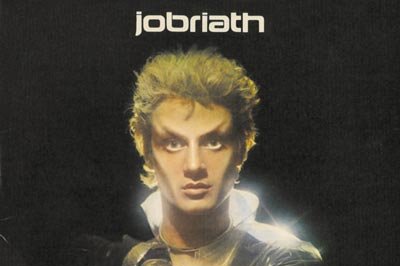Never heard of 1970s glam rock star Jobriath? Check out “Jobriath A. D.” [2:30 p.m. July 14, Ritz East; 9:30 p.m. July 15, Ritz East], an absolutely mesmerizing documentary that unearths the amazing, strange-but-true story of a super rock would-be superstar — who never became a star.
A talented, unique singer and incredibly accomplished pianist — he was a Temple University student for a year — Philadelphia native, Jobriath (nee Bruce Wayne Campbell) created a flamboyant stage persona, and dubbed himself a “true fairy,” perhaps committing career suicide in the process. Yet “Jobriath A.D.” suggests the musician’s epic fail may have been orchestrated by Jerry Brandt, his promoter, who exploited him. Whatever the truth, this documentary takes incredible twists and turns as it reveals Jobriath’s peculiar family life, and his post-rock star career developments before his death in 1983 from AIDS. Featuring incredible performance footage, and smart commentaries from queer musicians Stephin Merritt and Jake Shears this inventive film is a remarkable story of fame, failure and reinvention.
PGN spoke with director Kieran Turner about his must-see documentary playing QFest.
PGN: How did you learn about Jobriath? KT: I had heard his name always as a joke. The music wasn’t available, and I saw the pictures, and I was very turned off by him — he looked silly. Four years ago, I came across the compilation Morrissey put out on his label, and I was really shocked by the music and how good it was. I started doing research on him and his life and I found his story so compelling.
PGN: Jobriath has a fascinating backstory, which viewers need to discover watching the film. What surprised you about him? KT: I asked the many interviewees questions, but they only knew a particular part of his life. Even his friend Peter didn’t see [Jobriath] for a long time until they were reacquainted in a gay bar, and he needed a piano tuned. It was like making several different mini documentaries to group who was in his life at what point. He dropped everyone when he went to reinvent himself. He did not want anyone to remember who he was from the time he was a failure. It was like a snake shedding its skin.
PGN: Do you think his coming out was the reason for his epic fail? KT: I don’t know that any one thing caused the failure. It was everything coming together, but him being so flamboyantly gay and open contributed to it. But there was the hype and that his music is not really accessible. I think it’s wonderful, but I don’t think it could ever have been a hit even in the best of circumstances — even if he was in the closet. Elton John’s career derailed in 1976 after he came out as bisexual. It took another 36 years for Lambert to come out. Rufus Wainwright and Jake Shears were never going to be mainstream.
PGN: Do you think he played up his sexuality and femininity — in an era of more masculine sexuality — deliberately, and to his advantage or disadvantage? Turning gay into a gimmick? KT: The biggest surprise to me was why was Jobriath not so accepted? Four years post-Stonewall, it seemed to me that New York City was open and accepting — out loud and proud. I had no idea that this caste system in the gay community existed. That the gay community was terrified of Jobriath because they were afraid that everyone thought this sissy boy who wore make up [represented] the gay community. Jerry saw the androgynous trappings of David Bowie, Lou Reed and the New York Dolls, and thought everyone must be gay. He thought, “I’m going to launch the true fairy of rock ’n’ roll and take it one step further and ‘surf this one in.’” If he had his finger on the pulse of what was going on, he would have realized what a mistake that was.
PGN: You have rocker and LGBT ally Henry Rollins narrating and comments by gay musicians Stephin Merritt and Jake Shears, among others. What was your criteria for the interviewees? KT: One of the things I wanted to do was talk to openly gay musicians who are working now and compare and contrast how much things changed and how they stayed the same. I tried to interview Adam Lambert because he’s trying to move into a post-gay phase. But it is really hard to put that in there, because Jobriath’s story is so multilayered.
PGN: What do you think was Jobriath’s greatest, most unusual, exciting theatrical event? KT: I think his whole life was an incredible theatrical production to run away from/deny who he really was. He was trying to play all these different roles to resemble this wardrobe of characters so as to not be Bruce Wayne Campbell ever again. He was so psychically injured by his family and his upbringing. I don’t think he necessarily enjoyed a lot of it. He did it out of desperation. Cole Berlin was his most comfortable. Had he not gotten sick, he could have found his greatest and most lasting success.
